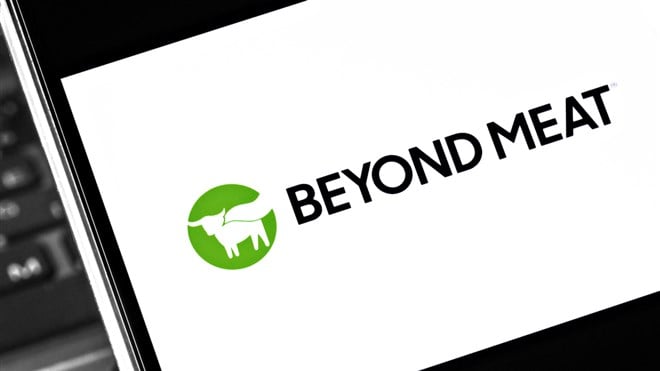
Besides the shared nomenclature, Beyond Meat, Inc. (NASDAQ: BYND) may have more in common with Bed Bath & Beyond than “meats” the eye.
Last week shares of the specialty retailer soared as high as $30 despite an absence of news. Traders bought more than $130 million worth of the popular meme stock which, on top of heavy options buying, forced short sellers’ hands in a big way.
It wasn’t the first time Bed Bath & Beyond went vertical for no reason, nor will it likely be the last. There were, however, two things that made this short squeeze quite different.
First, the volume was enormous. The 393 million shares that exchanged hands on August 16th was by far the highest daily trading activity yet—and was preceded and followed by several high volume days.
Second, the trip on the way down was especially rough. Word that activist investor Ryan Cohen dumped his entire Bed Bath & Beyond stake accelerated a sharp downturn. By Friday (8/19), the stock was back around $11.
Back to Beyond Meat, the plant-based meat alternative producer has a few similarities to Bed Bath & Beyond that give it serious squeeze potential. As we’ve been reminded in recent weeks, it doesn’t take much for social media platforms to get behind an underdog.
#1 - Float Matters
A stock’s float refers to the number of shares that are available for public trading. It excludes shares held by corporate insiders like executives, board members, and institutional investors.
In some cases, a company’s float is quite different from its number of shares outstanding. Low float stocks can become targets of retail traders because they are more susceptible to manipulation.
At 70.1 million shares, Bed Bath & Beyond doesn’t have a particularly low float, but it does have significant insider ownership. Approximately 12% of shares outstanding are excluded from the float, which makes things a tad easier for squeeze-minded traders.
Beyond Meat’s float is 58.1 million shares. This represents 91% of shares outstanding, a similar proportion to that of Bed Bath & Beyond. Not a huge disparity, but it helps set the stage.
#2 - Heavy Short Interest
More importantly, a huge percentage of Beyond Meat’s float is in the hands of short sellers. The stock’s 34% short float makes it one of the top five most shorted U.S. mid cap stocks.
How does this compare to Bed Bath & Beyond? About 41% of its float is held short, a figure that was much higher during the height of the recent short squeeze.
So if Beyond Meat amasses enough attention on Reddit’s Wall Street Bets and other investor platforms, a buying spree could force a lot of short hands.
The struggling company has had some short squeeze flare ups of its own, but they’ve been relatively modest and underachievers. Earlier this month, Beyond Meat shot up above $40 following a disappointing second quarter report that included worker layoffs and lowered guidance. True to short squeeze form, the stock has since returned to where the social media fueled rally began.
Another important metric to watch here is Beyond Meat’s 6.4 short interest ratio. This is the estimated number of days it would take short sellers to cover their positions by repurchasing borrowed shares. The calculation factors in the typical trading volume the stock sees, often an average of the last 30 or 90 days. If a short attack can sustain momentum for a couple days, Beyond Meat could experience an epic weeklong squeeze.
#3 - Bearish Analysts
Pessimism amongst Wall Street research firms has been another key component of some of the biggest recent short squeezes. This matters because retail traders tend to rally behind a company that it knows the big professionals don’t like. Often this is the reason why the stock is so heavily shorted in the first place. An opportunity for anti-establishment spite tends to attract more people to the party and accelerate a squeeze.
Bed Bath & Beyond has long been despised by the Street even before it was ordained a meme play. Lately, plunging sales and a CEO departure have been more reason for analysts’ bearish sentiment. Last week, three firms downgraded the stock to sell with price targets in the $5 to $7.50 range. Over the last two months, the retailer has received a dozen sell ratings, a lone hold rating, and no buys.
The Street’s opinion on Beyond Meat isn’t quite as negative but it's certainly not bullish either. Of the nine analysts that have offered updates on the stock this month, three have called it a sell and six a hold.
Hard to blame them really. Fleeting consumer demand and widening net losses highlight what is an ugly fundamental backdrop right now. Then again, when it comes to retailers’ short squeeze candidates, weak fundamentals matter little—and can actually be perceived as a positive.
Heavily shorted and heavily disliked on the Street, Beyond Meat has the (grill) markings of a formidable short squeeze recipe. The ingredients are there, but will enough traders show up to the feast?




